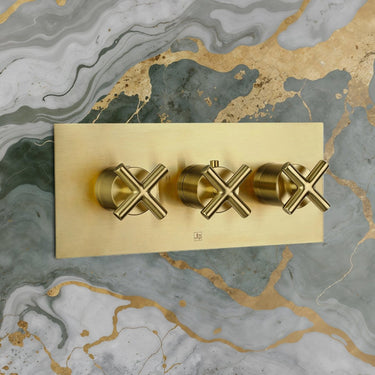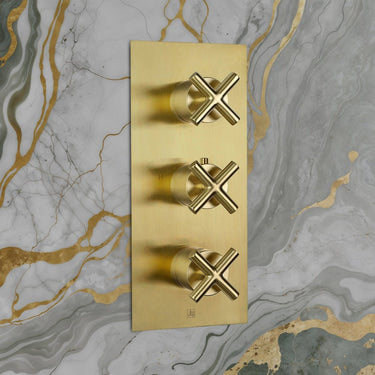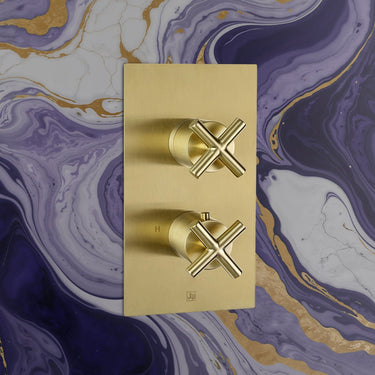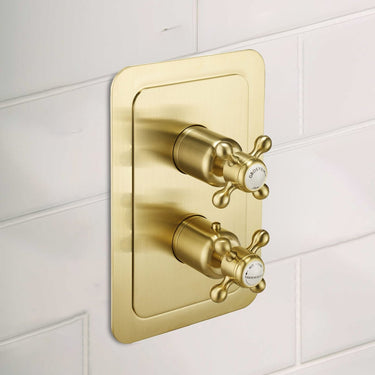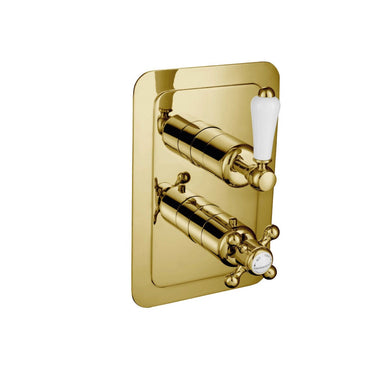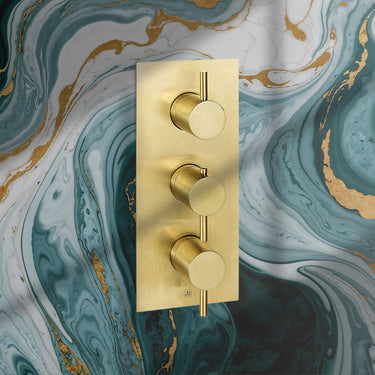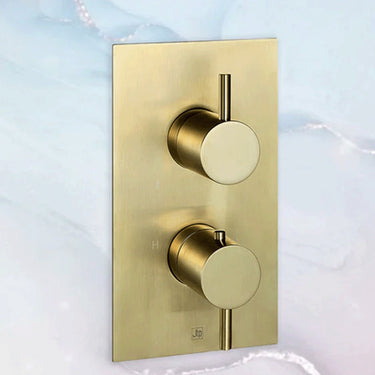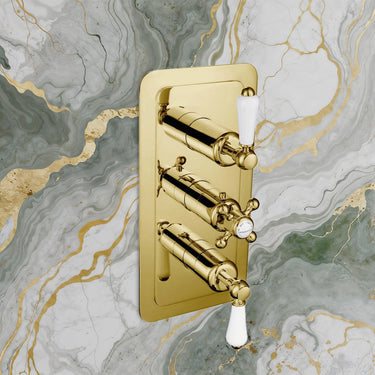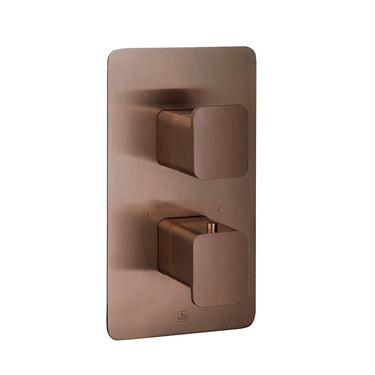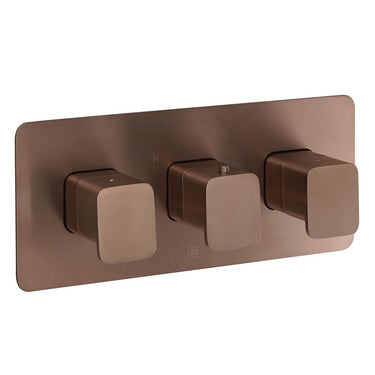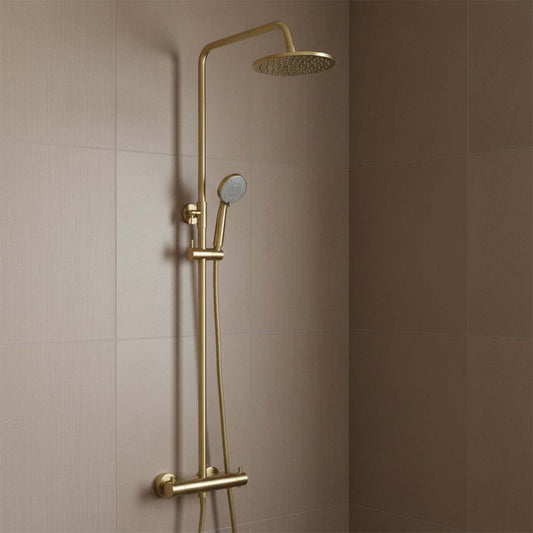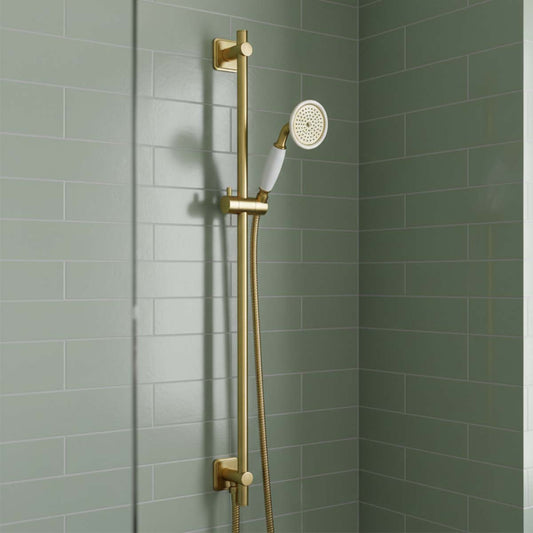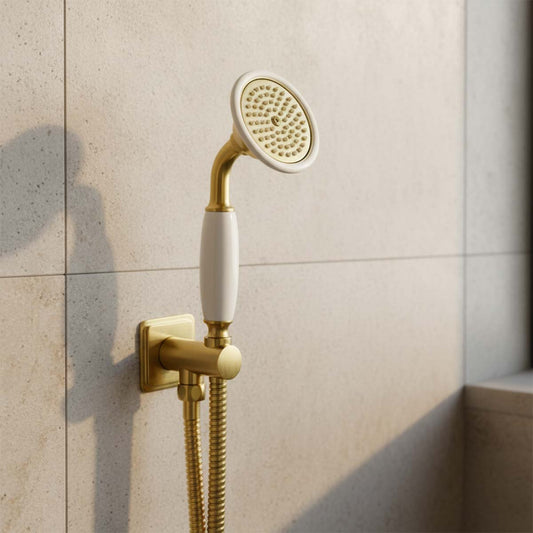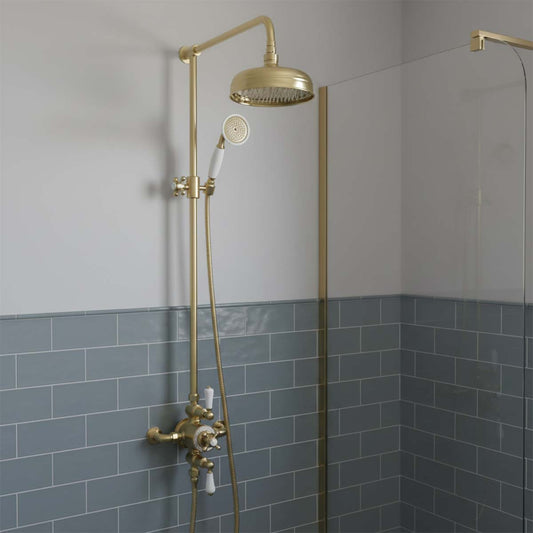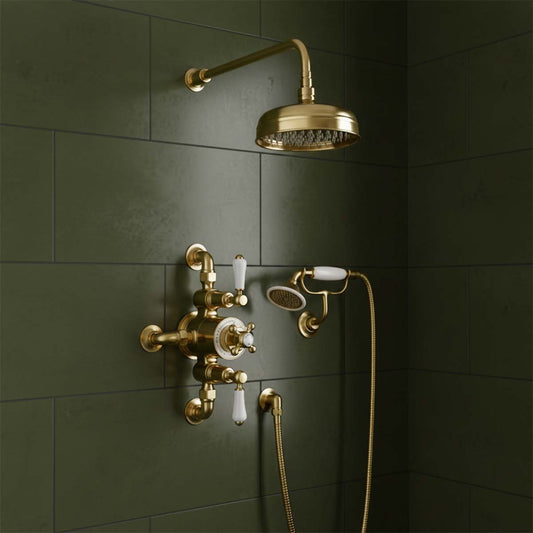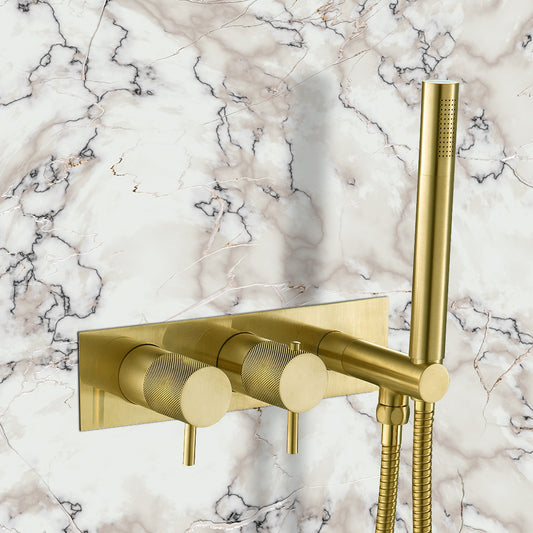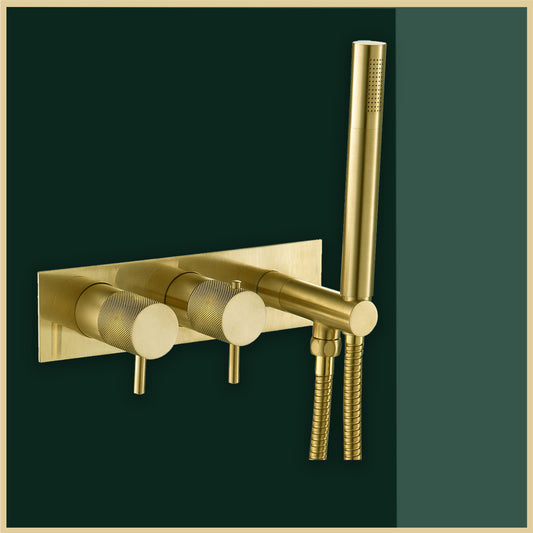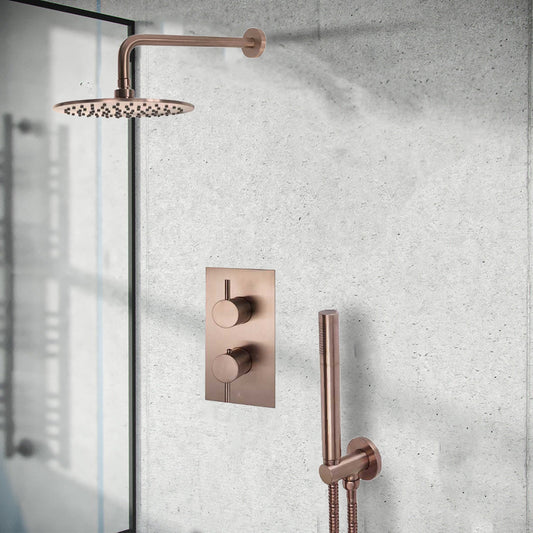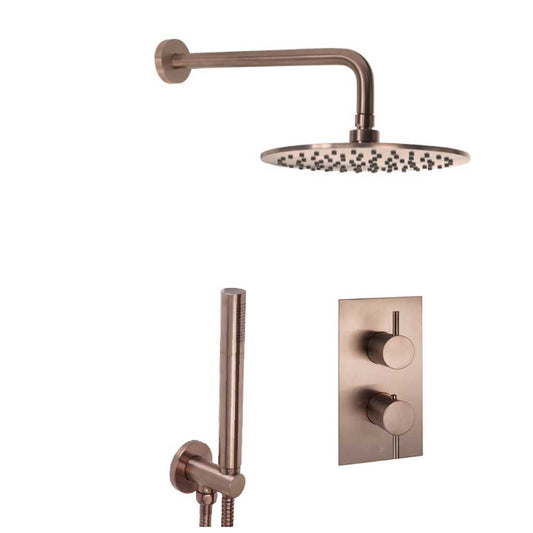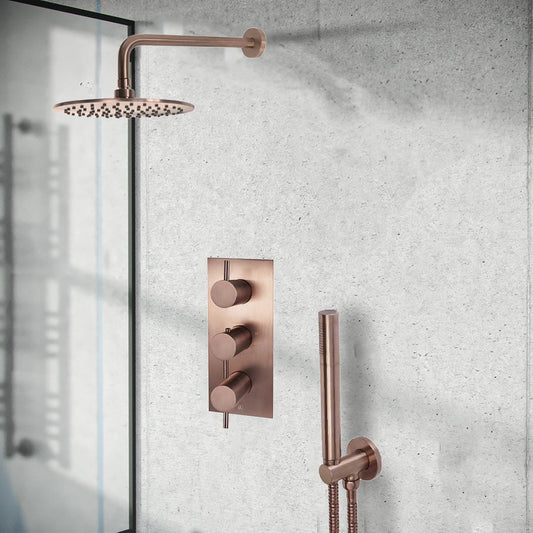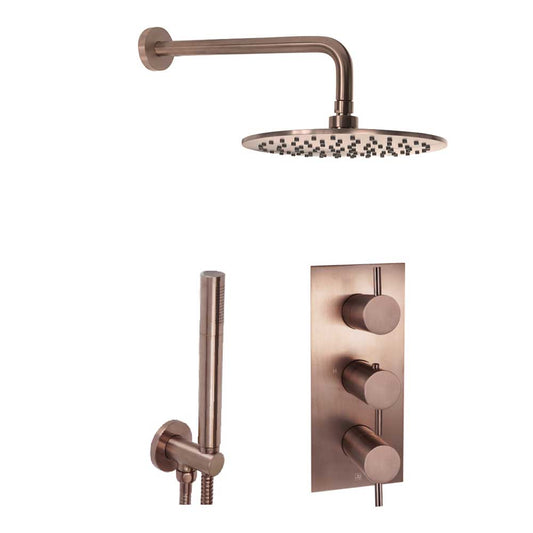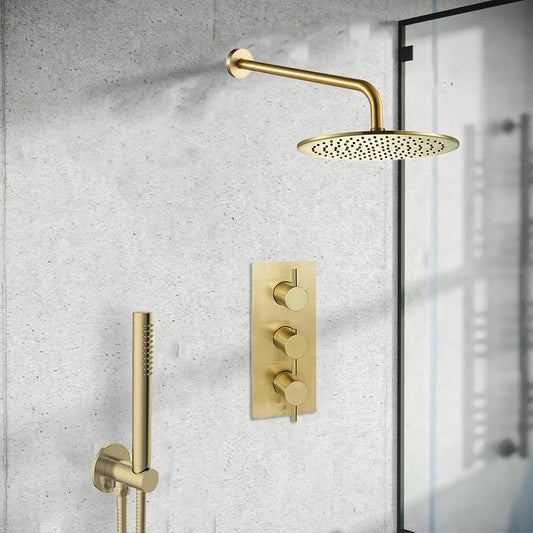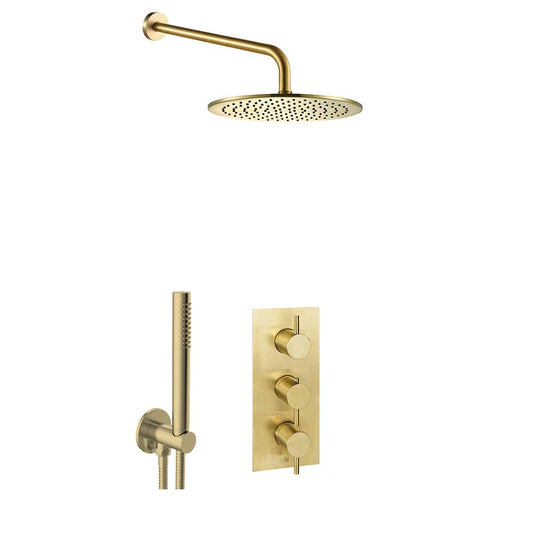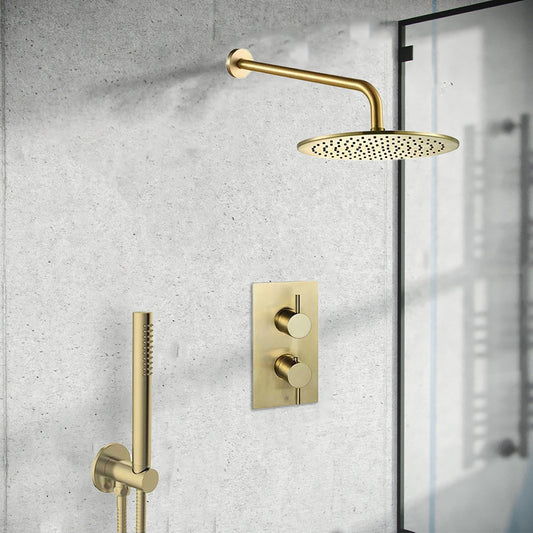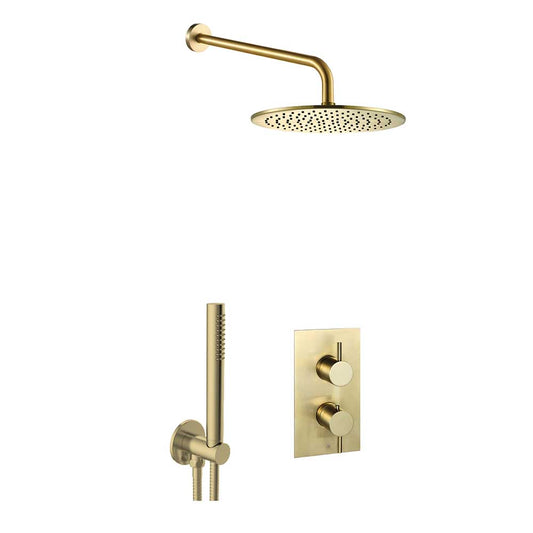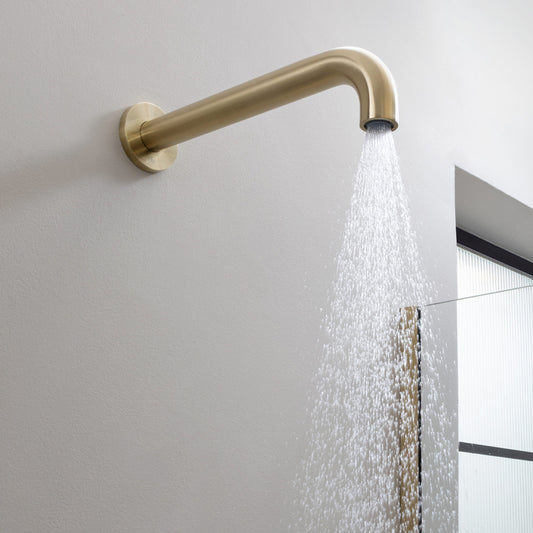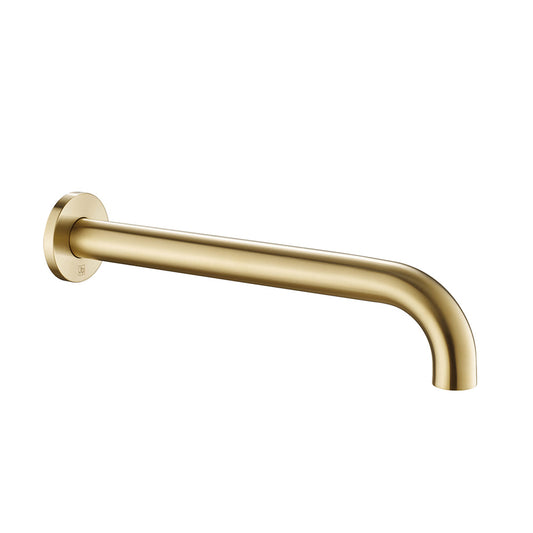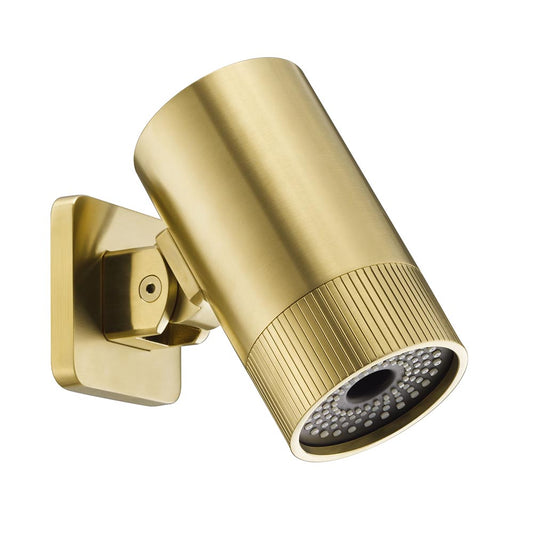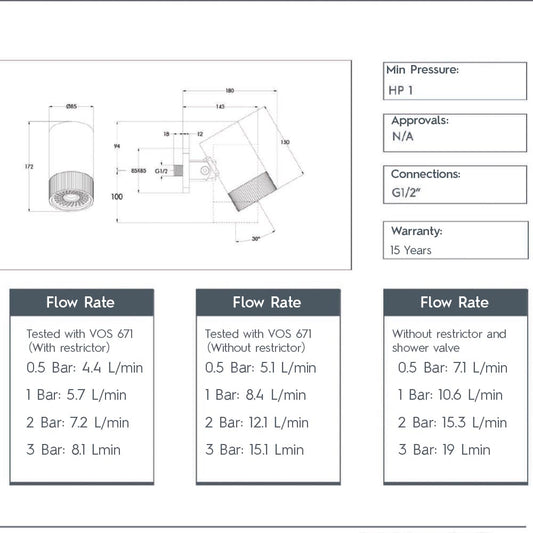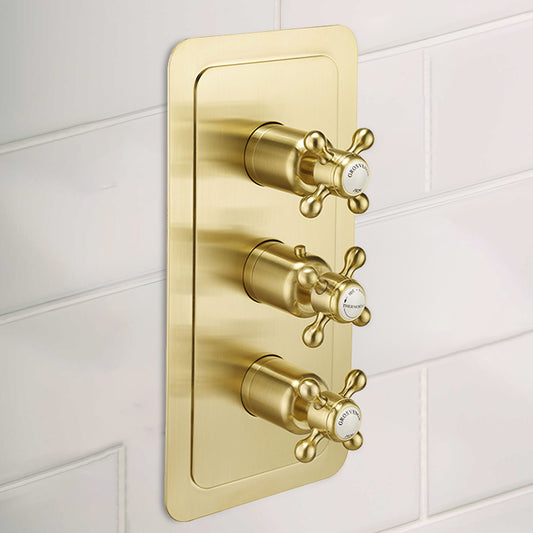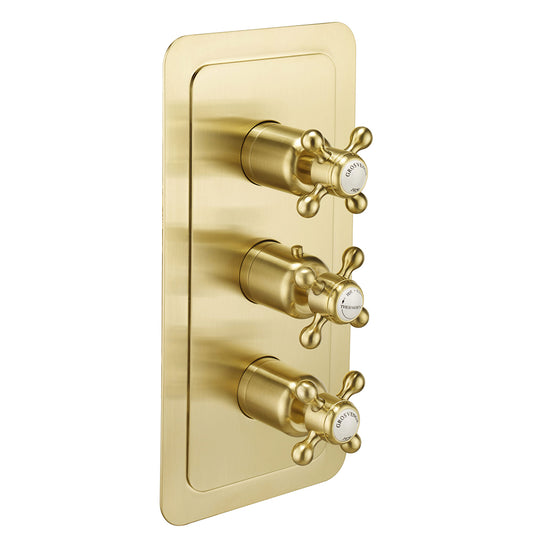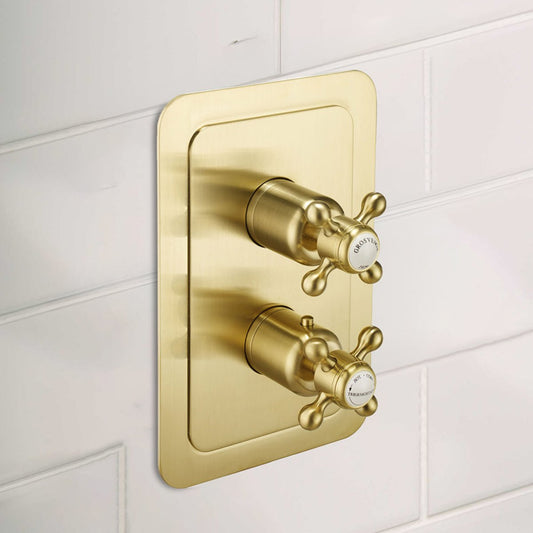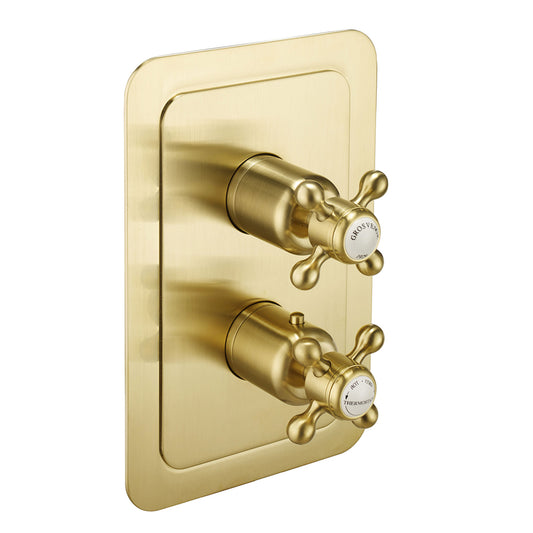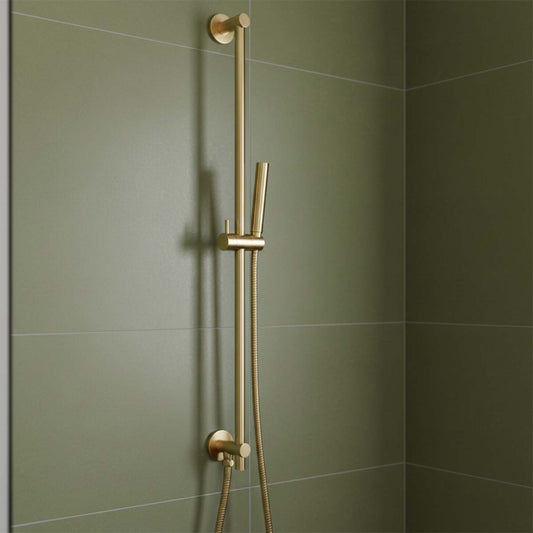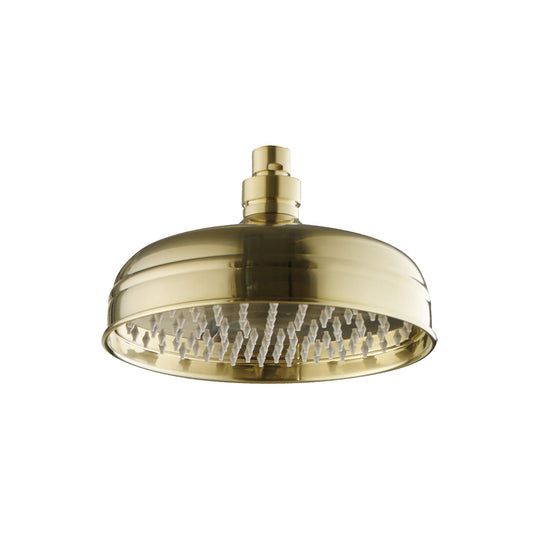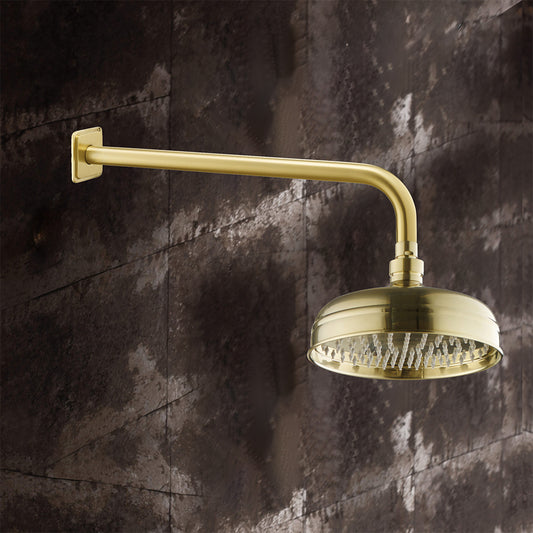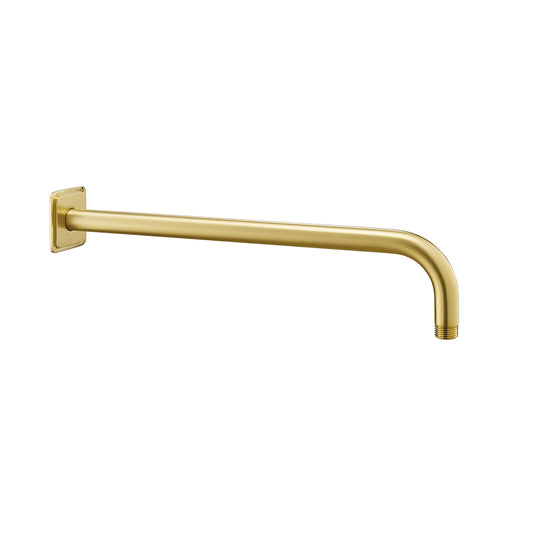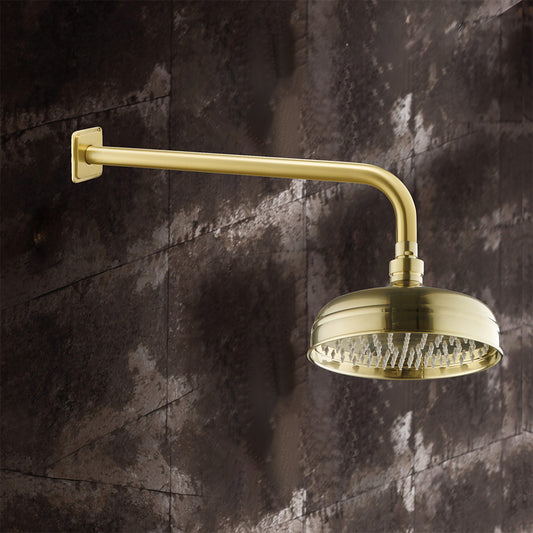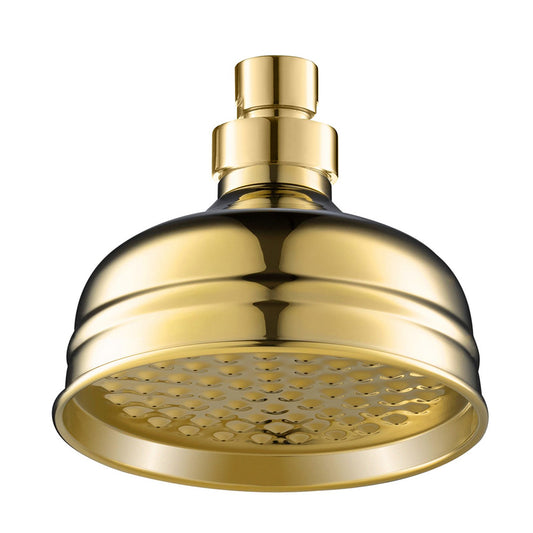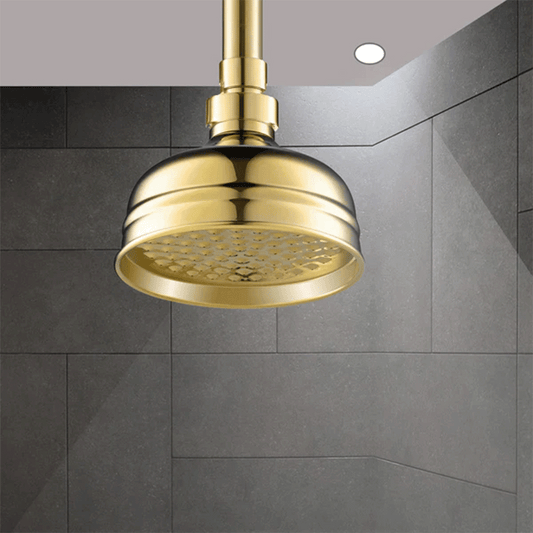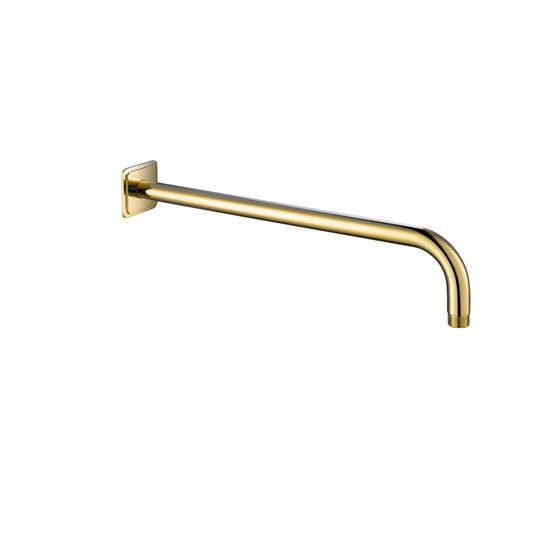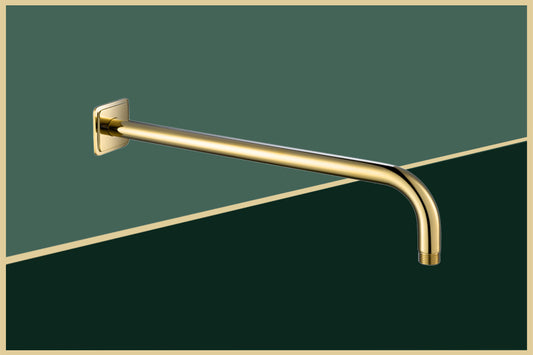A Comprehensive Guide to Different Types of Showers: From Electric to Digital Showers
Table Of Contents:
-
Introduction
→ -
Shower Valves Collection
→ -
Understanding Showers
→ -
Different Types of Showers: From Electric to Digital Showers
→ -
Which Shower is Right for You?
→ -
Cost of Showers: From Electric to Digital Showers
→ -
Conclusion
→ -
Frequently Asked Questions
→
Introduction
Upgrading your bathroom is a fantastic opportunity to create a space that feels fresh, functional, and tailored to your personal style. One of the most important decisions during this process is selecting the right shower. The type of shower you choose can significantly impact your daily routine, water consumption, and overall comfort. From traditional manual showers to cutting-edge digital systems, there are various options to consider. Each type of shower offers distinct features and benefits, which can affect factors such as water pressure, temperature control, and even your bathroom's aesthetic.
Your choice will depend on multiple considerations, such as your water pressure, the space available in your bathroom, your budget, and, of course, the kind of shower experience you desire. If you're looking for simplicity and reliability, a traditional electric or mixer shower might be your best bet. On the other hand, if you’re interested in advanced features like customizable settings, precise temperature control, and sleek digital displays, a digital shower could be an exciting option.
In this guide, we’ll explore the key types of showers available on the market, including electric showers, mixer showers, power showers, and digital showers. We’ll help you understand their functions, the advantages of each, and which shower suits your home’s specific needs. Whether you're renovating your bathroom or simply upgrading your current shower, this guide will provide you with all the information needed to make an informed and confident choice.
Understanding Showers
A shower is an essential feature in any bathroom, serving as both a practical and relaxing space for daily routines. However, understanding how showers work and the factors that influence their performance is key to making the best decision when upgrading or installing one.
The performance of a shower depends on various elements such as water pressure, temperature regulation, and heating systems. For instance, some showers rely on your home’s existing water supply to blend hot and cold water, while others may have built-in systems that heat water as it flows through. Additionally, water pressure plays a crucial role in determining the flow rate and strength of your shower. Low water pressure can result in a less satisfying shower experience, while high pressure provides a more invigorating experience.
Temperature control is another important aspect to consider. Some showers offer manual adjustments, where you mix hot and cold water to reach the desired temperature, while others have built-in thermostatic controls for precise temperature regulation. This ensures that the water stays at a constant temperature throughout the duration of your shower, eliminating the frustration of fluctuating hot and cold water.
Overall, understanding how these factors come together in a shower can help you choose the right type for your bathroom. By knowing how the system works, you can ensure that you select a shower that suits your preferences, provides the right water flow, and delivers the comfort and functionality you need in your bathroom.
Different Types of Showers: From Electric to Digital Showers
Choosing the right shower for your bathroom is essential, not just for style but also for practicality and comfort. Whether you want to save water, improve water pressure, or add a touch of luxury, there’s a shower type suited for your needs. Here’s an in-depth look at the different types of showers, each offering distinct advantages and considerations to help you make an informed decision:

1. Electric Showers
What They Are: Electric showers are a self-contained unit that heats cold water as it flows through the showerhead. They don’t require a hot water supply or a storage tank, which makes them ideal for smaller homes or areas with limited water heating systems.
How They Work: The electric shower works by using an electrical heating element to warm up cold water that enters the unit. You control the temperature through the shower's controls, and the unit adjusts the water flow and temperature automatically.
Benefits:
-
Instant Hot Water: Provides hot water on demand without relying on a hot water tank or boiler, making it perfect for homes with limited hot water supply.
-
Energy-Efficient: Heats only the water you use, reducing the energy consumption compared to traditional shower systems.
-
Space-Saving: Ideal for smaller bathrooms as it doesn't require a bulky water tank.
-
Easy Installation: A good option if you don’t have a conventional hot water system in place.
Considerations:
-
Water Pressure: The water pressure might not be as strong as other types of showers, and some electric showers can have limited water flow, depending on your water pressure.
-
Electricity Supply: Requires a dedicated electrical supply and may need a qualified electrician for installation.

2. Mixer Showers
What They Are: Mixer showers are one of the most traditional and commonly used types of showers. They work by mixing hot and cold water from your household supply and providing a consistent water temperature at the showerhead.
How They Work: The shower mixes water from your hot and cold water supplies in the valve, then delivers a stable temperature and flow to the showerhead. The temperature and flow are adjustable through the controls.
Benefits:
-
Consistent Temperature: Once set, the mixer shower maintains a consistent temperature throughout your shower, offering comfort and convenience.
-
Cost-Effective: These showers are relatively affordable and don’t require additional installation, making them a budget-friendly option.
-
No Electricity Needed: Mixer showers don't require an electrical supply, so they work in any home with a conventional plumbing system.
Considerations:
-
Water Pressure Dependent: The effectiveness of the mixer shower relies heavily on your home's water pressure. Low pressure could result in a weak or inconsistent water flow.
-
Hot Water Supply: You need a reliable hot water system to provide a continuous supply of warm water. If you run out of hot water, your shower experience could be compromised.
3. Power Showers
What They Are: Power showers are specifically designed to tackle low water pressure situations. They feature an integrated pump that boosts both hot and cold water to provide a strong and invigorating shower experience.
How They Work: Power showers use a pump to increase the water pressure, giving a high-flow shower even in areas where water pressure is naturally low. The pump works with your existing hot and cold water supplies to create a powerful stream.
Benefits:
-
Strong Water Flow: Power showers offer high-pressure water flow, making them ideal for homes with low water pressure or for those who prefer a stronger, more invigorating shower.
-
Enhanced Comfort: The pump boosts the flow, so you get a more luxurious, spa-like experience.
-
Effective in Low-Pressure Areas: Perfect for homes or areas with insufficient water pressure, as it overcomes these limitations.
Considerations:
-
Requires a Pump: The built-in pump needs to be powered, which means the shower needs to be connected to an electrical supply.
-
Energy Usage: The pump consumes additional energy, which could increase your energy costs over time.
-
Installation Complexity: Installation of power showers can be more complex and may require professional help to ensure proper setup and electrical connections.

4. Thermostatic Showers
What They Are: Thermostatic showers feature a control valve that automatically adjusts the temperature of the water, keeping it constant throughout your shower. The system prevents sudden temperature fluctuations, ensuring safety and comfort.
How They Work: The thermostatic valve maintains a consistent temperature by regulating the flow of hot and cold water. If someone uses water elsewhere in the house (like a tap or toilet flush), the shower will automatically adjust to maintain the temperature.
Benefits:
-
Constant Temperature: The primary benefit is maintaining a constant, safe water temperature, preventing scalding or cold shocks, making it perfect for families with young children or elderly individuals.
-
Safety: Thermostatic valves are great for preventing sudden temperature fluctuations, especially in homes with high-demand plumbing systems.
-
Enhanced Comfort: You can set your desired temperature, and it will stay constant during your shower.
Considerations:
-
Installation Cost: Thermostatic valves can be more expensive than basic manual shower valves.
-
Water Pressure: The thermostatic valve needs a steady water supply to function effectively, so it might not perform well in homes with low water pressure.
5. Digital Showers
What They Are: Digital showers represent the latest in shower technology, allowing you to control temperature, flow, and even set your shower preferences using a digital interface. Some models allow you to control the shower remotely via apps or smart home systems.
How They Work: Digital showers are connected to your home’s plumbing system and are controlled via a digital display or remote control. You can set the exact temperature and water flow to your preferences, and many systems even allow you to program the shower to start automatically at a specific time.
Benefits:
-
Precise Control: Digital showers provide precise control over temperature, water pressure, and even water flow, offering a luxurious shower experience.
-
Customization: You can often program your preferred settings, which is great for families who want different settings or for those who want a spa-like experience.
-
Smart Features: Some models allow voice control or smartphone integration, making them a great addition to a smart home setup.
Considerations:
-
Higher Initial Cost: Digital showers are typically more expensive to install and purchase than traditional models.
-
Requires Electrical Installation: These showers need a dedicated electrical supply, which means professional installation is required.
-
Technology Limitations: While high-tech, the digital shower system may have occasional glitches or issues with connectivity.
Each type of shower offers unique features and benefits, and the best choice for you depends on your specific needs, such as water pressure, available space, budget, and desired features. Whether you opt for the instant hot water of an electric shower, the consistent flow of a mixer shower, or the high-tech control of a digital shower, the right shower can transform your bathroom into a relaxing, functional space. Consider your lifestyle, the condition of your plumbing, and your preferences when making the decision.
Which Shower is Right for You?
Choosing the right shower for your bathroom largely depends on your specific needs, preferences, and the existing conditions of your plumbing system. Here are some factors to consider when determining which shower type will best suit your home:

1. Water Pressure and Flow
If you live in an area with low water pressure, you’ll need a shower that can enhance flow. A power shower or digital shower would be ideal in such a case, as these are designed to boost pressure and provide a strong water flow. On the other hand, if you have excellent water pressure, a mixer shower or electric shower could work perfectly without the need for extra boosting features.
2. Hot Water Supply
-
Electric Showers: If your home doesn't have a reliable hot water supply or you don’t have a hot water tank, an electric shower is a great option. It heats water on demand, so you don’t need to worry about running out of hot water.
-
Mixer Showers: These are best if you have a steady hot water supply from a tank or a combi boiler. Mixer showers rely on a consistent flow of hot and cold water to maintain your desired temperature.
3. Family or Individual Use
If you're installing a shower for a family, a thermostatic shower might be the right choice. It ensures a safe, consistent temperature for everyone, especially for children or elderly users, preventing sudden temperature fluctuations. For single users who value control over their water temperature and flow, a digital shower might be more appealing due to its precision and customizable settings.
4. Space and Design Preferences
-
Electric Showers: Ideal for smaller bathrooms or those with limited space, as they don’t require a hot water tank.
-
Mixer Showers: Work well in mid-sized bathrooms, as they require both hot and cold water supplies.
-
Digital Showers: Typically take up more space due to their sophisticated controls but provide a sleek, modern look.
-
Power Showers: May need more space to accommodate the pump and other components, so they’re better suited to larger bathrooms.
5. Budget
-
Electric Showers are generally the most affordable and easy to install. They don’t require complex plumbing and can be a quick solution for homes with limited hot water supply.
-
Mixer Showers are usually mid-range in cost and are ideal if you have a consistent hot water supply.
-
Power and Digital Showers are more expensive due to their advanced features, but they offer higher performance, especially in terms of water flow and pressure.
6. Technology and Convenience
For those who love modern technology, a digital shower offers the ultimate in customization and smart features. With precise control over water temperature, flow rate, and even programming your shower preferences, digital showers are ideal for tech enthusiasts or those looking for a spa-like experience in their bathroom. If you prefer a straightforward approach, a mixer shower or electric shower may be more suitable.
7. Installation and Maintenance
-
Electric Showers are often the easiest and quickest to install, especially if you don’t need any major plumbing work.
-
Mixer and Power Showers require a bit more expertise during installation, as they depend on your existing plumbing systems.
-
Digital Showers are the most complex to install, requiring both plumbing and electrical expertise to ensure everything works correctly.
In conclusion, the best shower for you will depend on your home’s water pressure, the type of water heating system, available space, and your budget. Each shower type offers unique features and advantages. By considering these factors carefully, you can find the perfect shower that meets your needs and enhances your bathroom experience.
Cost of Showers: From Electric to Digital Showers
The cost of showers in the UK can vary significantly based on the type of shower system you choose. Here’s an overview of the costs associated with various types of showers, from traditional electric showers to the more modern digital ones.
|
Shower Type |
Installation Cost |
Operating Cost |
Key Features |
Maintenance Tips |
|---|---|---|---|---|
|
Electric Showers |
Basic: £100 - £250 |
£0.10 - £0.15 per 10 minutes |
Heats water as it flows through using electricity. Ideal for homes without a hot water tank. |
Descale showerhead regularly, clean filters for optimal water flow. |
|
Power Showers |
£200 - £500 (may go above £600 for higher-end models) |
£0.30 - £0.50 per shower |
Mixes water with additional pressure from a pump. Suitable for low water pressure homes. |
Check for leaks around the valve, clean showerhead, and inspect pump periodically. |
|
Thermostatic Showers |
£150 - £400 |
£0.10 - £0.30 per 10 minutes |
Maintains a consistent water temperature by controlling both hot and cold water flow. |
Regularly clean showerhead and check mixer controls for leaks. |
|
Digital Showers |
£400 - £800 (premium systems may cost more) |
£0.20 - £0.40 per 10 minutes |
Advanced features like precise temperature control, pre-set programs, and remote control options. |
Keep control panels clean and free from water damage. Consult a professional for issues. |
|
Rain & Multi-Function Showers |
£200 - £800 |
£0.30 - £0.60 per 10 minutes |
Luxurious experience with rain-style heads or multiple settings for different water pressures. |
Ensure no mineral buildup in jets, clean the showerhead regularly. |
Factors Affecting Shower Costs:
-
Water Rates: Charges based on a metered water supply vs. a non-metered system.
-
Energy Source: Cost varies based on whether you use gas, electricity, or both.
-
Shower Efficiency: Newer models like digital or thermostatic showers are more energy-efficient.
Conclusion
Choosing the right shower for your home depends on your personal preferences, budget, water pressure, and bathroom space. From the simplicity of electric showers to the luxurious experience of digital showers, there’s a perfect option for every household. By considering the factors discussed in this guide, you can make an informed decision and enjoy a shower that meets both your functional and aesthetic needs.
Frequently Asked Questions
An electric shower heats water on-demand without requiring a hot water system, making it ideal for homes with low water pressure. A power shower, on the other hand, uses a pump to boost water pressure and may require a hot water supply.
Digital showers may require more maintenance than traditional showers due to their electronic components. Regular cleaning of the controls and ensuring that there are no blockages in the system is essential.
The cost varies depending on the type of shower you choose, with electric showers being the most affordable and digital showers being the most expensive. Installation costs can range from £150 to £500.
While some simple showers like electric models can be installed by a DIYer, it's generally recommended to hire a professional plumber for complex systems like power or digital showers to ensure proper installation and avoid potential damage.












